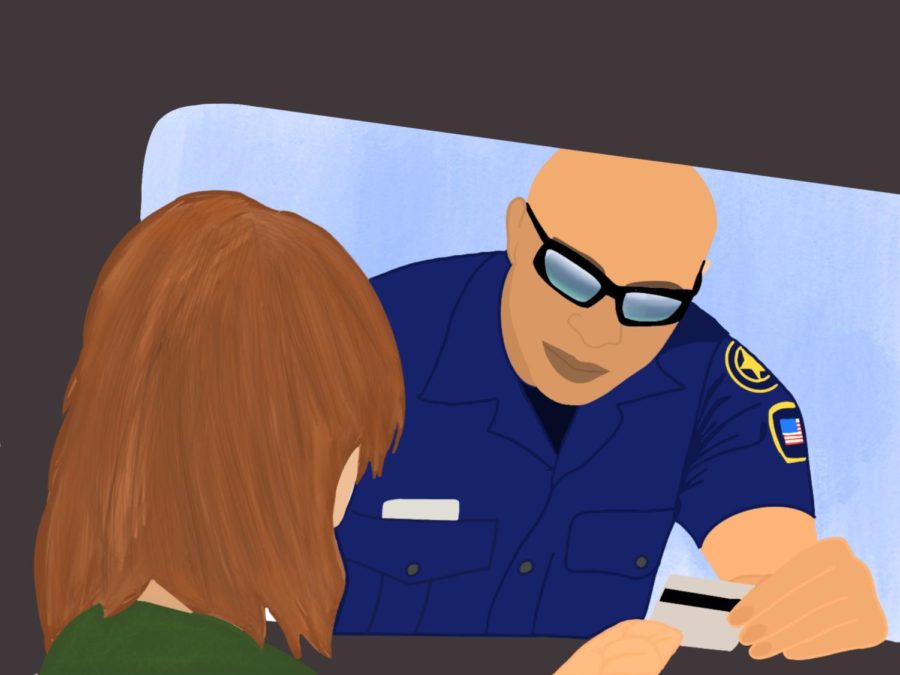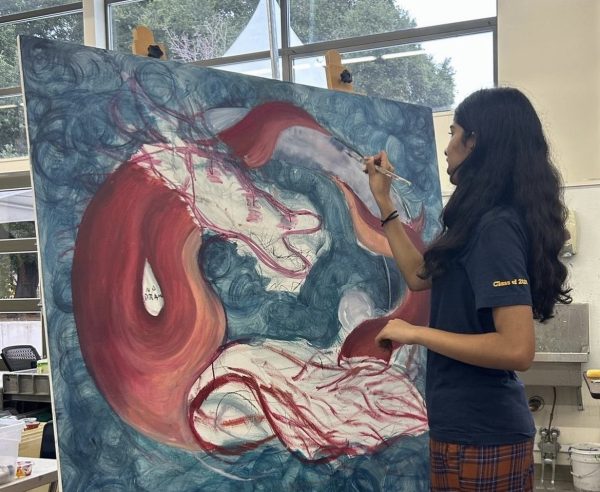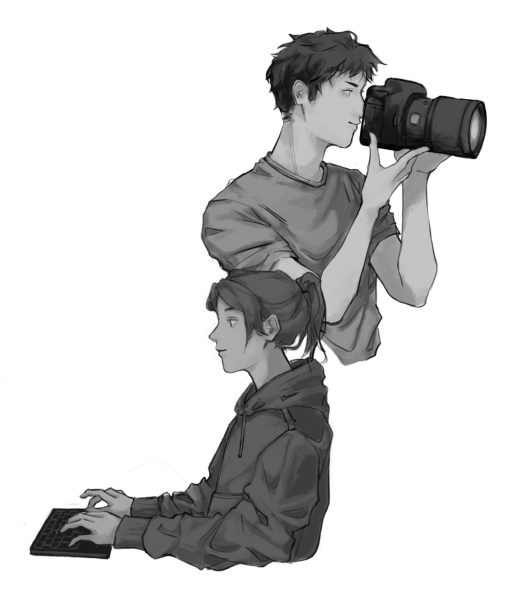A Teen Driver’s Guide to Getting Pulled Over
Local Police Chief David Norris offers advice for teens when they’ve gotten pulled over. Staff illustration: Sophie Fang.
October 30, 2021
Most drivers, especially teenagers, receive little instruction about what to do when a police officer pulls them over. Menlo Park Police Chief David Norris has a handful of tips for young drivers to help navigate this experience.
1. If you see no flashing lights, do not worry.
“The first thing that I would recommend is that if [a] police car is behind you and there are no lights, there is nothing to indicate that that car is intending to stop you. [It] is just another vehicle on the roadway, so do not let that take away from your defensive driving ability,” Norris said.
2. Pull over to a safe spot.
Depending on where you are when a police officer signals you to pull over, you may need to slowly continue driving until you can locate a safe place to pull over. Sometimes, especially if you are on the highway, the officer may even provide instructions.
“If that stop happens and the [police flash their lights at you], the first thing that you should be doing is looking for a safe place to pull over,” Norris said. “[No] police officer is going to have an issue with a person that is making a stop and finding a safe place to pull over.”
3. Roll down your window if you feel comfortable.
“Officers really appreciate it if you can roll [your window] down all the way so that they can have a conversation with you. They also know that some people are not comfortable with that and [will] only open it enough to hand out [their] license and registration. Either of those things is fine,” Norris said. “We would like to be able to have a regular conversation with the people that we have stopped because part of what we do, and every part of a traffic stop, is about education. […] Those conversations [are] a lot easier if it can be kind of a face-to-face interaction.”
4. Let the officer know where you’re reaching.
“In an ideal world, you [would let] an officer know that ‘My paperwork is in my glove box. Can I just go reach [for it] and get it?’ so they know what you’re going to do, and you’ve told them. That is a good way because we’re real people, and we want to have a conversation with you and want you to feel safe,” Norris said.
5. Come to an agreement.
“Once you have [handed over your documents], officers have discretion on whether or not they want to write you a ticket. I will tell you how I personally look at it. If I have a conversation with you, and I can have an agreement that you realize that you did something that was unsafe and that there is a lesson there, then I will send you on your way [with a warning]. That said, every officer is empowered with their own sense of discretion on whether or not to write a ticket,” Norris said. “If [the driver does not acknowledge any wrongdoing], then I may feel like I have to document it on a citation because clearly there is no lesson learned.”
The American Civil Liberties Union affirms that, aside from providing your name and documentation, people cannot be punished for refusing to answer questions, including whether or not they know why they were stopped. However, citizens can exercise their right to remain silent and solely provide the required documents while maintaining a calm and respectful demeanor, according to Fremstad Law. Officers have a lot of latitude in how they treat you, so if you are making the officer annoyed, that could influence their decisions. Politely refusing to answer any unnecessary questions is the preferred method for several lawyers, including those that work for Fremstad Law.
6. Ask for a supervisor if necessary.
“If there was something during the course of that contact that made you feel uncomfortable, you can always ask for [the officer] to have a supervisor respond and have someone that has oversight have a conversation with you about what has occurred,” Norris said.













